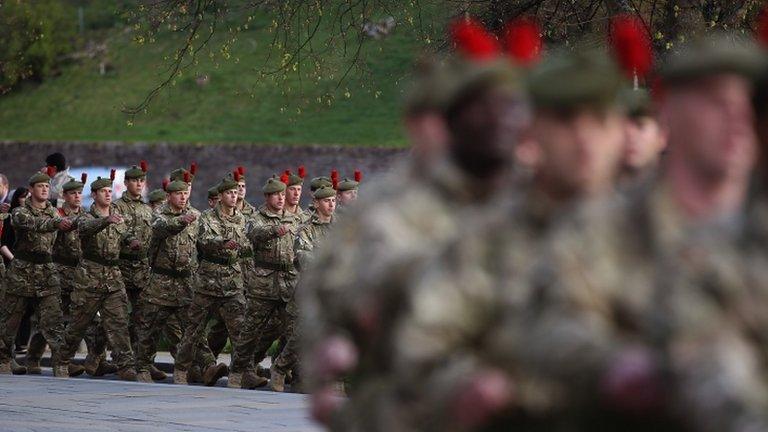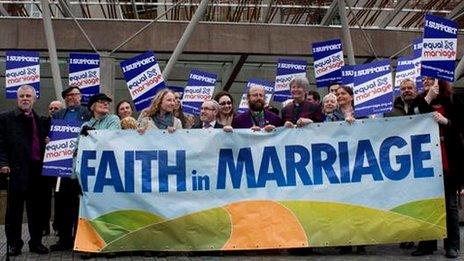Goals count, don't they?
- Published
How to decide who has won an election? The customary method is to count the ballot papers - and to award victory to the one with the most votes.
Now the Single Transferable Vote in multi-member constituencies adds a degree of sophistication to that. But, still, the spoils tend to go to those with evident popular support.
This, apparently, is an old-fashioned outlook. Just so Twentieth Century. At Holyrood, Labour's Johann Lamont suggested another test might be used instead.
The SNP, she said, might have won the council elections "on the arithmetic". But "on the politics" they "got stuffed."
It is difficult to be entirely certain, but I suspect that most political leaders would probably settle, on balance, for winning "on the arithmetic".
One thinks of the charming little soccer ditty, "Vindaloo", which trumpets: "We're gonna score one more than you."
No reference, mark you, to the number of corners gained. No mention of silky skills on display. No calculation as to the relative possession of the ball. Goals count. In deciding victory, one counts goals.
Not, you understand, that Alex Salmond was accepting Ms Lamont's analysis in any regard, including "on the politics." But he did stress some arithmetical points - to the effect that the SNP had won more council seats than any other party, including Labour, with a greater share of the vote.
Escape fees
Ms Lamont sought to paint an image of disquiet in SNP ranks at their council elections performance, notably in Glasgow. Mr Salmond was deeply unimpressed. "What a load of nonsense!" he declared, before urging a return to more substantive matters.
Substance from Ruth Davidson of the Tories and Willie Rennie of the Liberal Democrats.
Ms Davidson discerned loopholes in the provisions for Scotland's universities charging fees to students from other parts of the UK.
Apparently, if you can obtain an Irish passport or your granny is Austrian then you escape fees as an EU citizen. Mr Salmond was dismissive - although his rebuttal largely consisted of arguing that the problem would not arise, much, in practice.
It was, apparently, a "Tory scare story" - and Ms Davidson should instead turn her attention to serious matters such as the fate of Scotland's historic regimental names. (An SNP backbencher duly obliged on that very point later.)
As for Willie Rennie, he wanted Mr Salmond to declare support for gay marriage. Mr Rennie noted that the Prime Minister had offered his backing for the idea (without adding that the proposal was excised from the UK Government's Queen's Speech.)
President Barack Obama was also in favour.If it was good enough for Obama, argued Mr Rennie, it should be good enough for Salmond.
However, the First Minister was cautious. His personal view - which is supportive - had not changed. But it was right to assess carefully the findings from a consultation exercise, attempting to address concerns raised by those who are opposed to such a plan.
- Published10 May 2012

- Published30 April 2012
